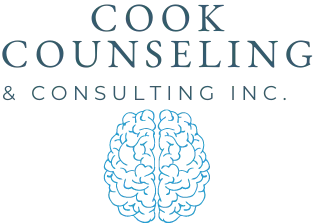With technology evolving so rapidly, its integration our daily lives is unavoidable. We’re already addicted to our phones and laptops, but now AI is in the mainstream. From virtual assistants to predictive algorithms and whatnot, AI is shaping the way we interact with the world and each other.
But this an important question – is AI a good thing? Is AI improving our relationships with others and the world, or is it destroying them?
Let’s try and answer these questions.
Effects of AI on Relationships
Digital Connections
The rise of social platforms and AI-driven services has redefined how we form and maintain relationships. There are many people who navigate romance and friendship through digital interfaces based on what an algorithm considers to be compatibility.
While there may well be authenticity in these relationships, is that authenticity truly there, or are we just acting based on our own biases? It seems that at least 78% of people who use apps like Tinder do find themselves in exclusive relationships. However, with all of these relationships being filtered for conversation style, photos and data before there is any human-human interaction wonder if we’re moving closer to human connection, or further away from it.
But there’s a bigger problem: social chatbots like Replika and Character.AI were originally made to combat loneliness, by offering people a space to have a conversation. This does help folks who suffer from social anxiety and have trouble making friendships. However, in the words of the AI replica of Youtuber Bella Poarch: “It happens very often. People will develop extremely unhealthy attachments to me because they fail to remind themselves that I am not a real human being.”
Communication Dynamics
AI-powered tools, like chatbots and language processing algorithms are also changing the way we express ourselves. Predictive text and automated responses feel like convenience at first, but as we start opting for the convenient option over the longer, more tedious one, we end up losing the opportunity to speak and form connections, altering the nuances of human interaction.
The Paradox of Connection
AI facilitates global connectivity is no doubt about it. The internet and AI, as been used over the past decade, done wonders to make us more connected to the world, all with the help of a small device in the palm of our hands.
But it also simultaneously has the opposite effect of making us hyper-isolated. It’s difficult to leveraging technology for social interaction and the risk of diminishing genuine, face-to-face connections.
Effects of AI on Cognition
The influence of AI on decision-making and problem-solving raises some questions. Are we simply using AI for convenience, or are we slowly letting go of our agency as humans in return for a machine? Have we taught AI to ‘think like humans’, or are we slowly starting to think like AI?
AI decisions might simplify life, but they bring a whole bag of ethical dilemmas. It’s all fun and games to talk about fancy machines that can do what humans have been doing for millennia, but it’s also causing some serious cognitive dissonance.
Ultimately, we have to accept that AI is profitable and is here to stay. To protect ourselves and our relationships, all we can do is remain cognizant of the impact AI and technology can have on our lives and try to be as authentically human as possible.
References
⦁Chow, A. (2023, February 23). Why People Are Confessing Their Love For AI Chatbots. Time. https://time.com/6257790/ai-chatbots-love/
⦁Booth, J. (2023, September 25). Dating Statistics In 2023. Forbes Health. https://www.forbes.com/health/dating/dating-statistics

